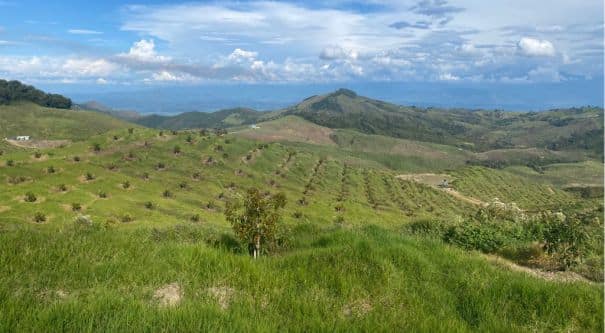Valle del Cauca, with its export potential, stands out as an agribusiness hotspot
• Peruvian, Chilean, U.S, Mexican and Dutch companies have been established in central and northern Valle del Cauca municipalities.
A growing number of international agribusiness companies are looking for investment and expansion opportunities in Valle del Cauca. Over the last seven years, nine companies from the industry have arrived, supported by the Cali and Valle del Cauca investment promotion agency, Invest Pacific.
What are the highlights? 35% of the national fruit production happens in Valle del Cauca, thus making it the largest agricultural producer in Colombia. Also, it ranks as the fourth department in avocado production and third in avocado exports and represents the largest agro-industrial crop area in the country, with more than 360,000 hectares.
On top of these advantages, it has the main port in Colombia, which is on the Pacific Ocean. This port carries 43% of Colombia’s foreign trade. This is why the region is considered to be the best agricultural production export platform: it has more than 360 thousand hectares suitable for farming and boasts the most sophisticated and diversified economy in the country.
As well as being Colombia’s agricultural belt, Valle del Cauca is home to research centers, nurseries, crops and packing plants. For instance, Managro, which has conquered markets in different continents, is the third largest avocado packing company in the country. Valle del Cauca is also home to the International Center for Tropical Agriculture (CIAT), Colombia’s main international agricultural research center.
“At Invest Pacific, we’re witnessing a very important trend when it comes to attracting foreign capital companies into our department. Californian, Mexican, Peruvian, and Chilean investors have believed in Valle del Cauca and have found lands, human talent, infrastructure, and connectivity to ensure their agricultural export projects are viable globally,” stated Invest Pacific executive director Alejandro Ossa.
There are even more reasons why agribusiness companies are choosing to invest in this region: in terms of incentives, there is a national income tax exemption (35%) for a 10-year period upon starting a company. There is also an Industry and Commerce tax exemption (0.2% – 1%) for agricultural production activities.
“The Latin America agricultural export industry is changing, and this has led several countries to find in Colombia, especially in Valle del Cauca, a chance for expanding their agricultural frontiers. With this, we are reaching more municipalities to provide formal employment opportunities to our farmers and to transform the territories”, added Alejandro Ossa.
All this potential has attracted companies like Camposol (Peru), Green Fruit Avocados (United States), Viveros Genesis (Peru), Green SuperFood (Chile) and Agrícola Ocoa (Chile). These are Hass avocado companies established in municipalities such as Sevilla, El Dovio, Versalles, Caicedonia, Trujillo, Argelia, and Bolivar. Valle del Cauca lands are also suitable for growing flowers, sugar cane, grapes, lulo, pineapple and citrus fruits, among other crops such as bananas, corn, plantains, and coffee.


